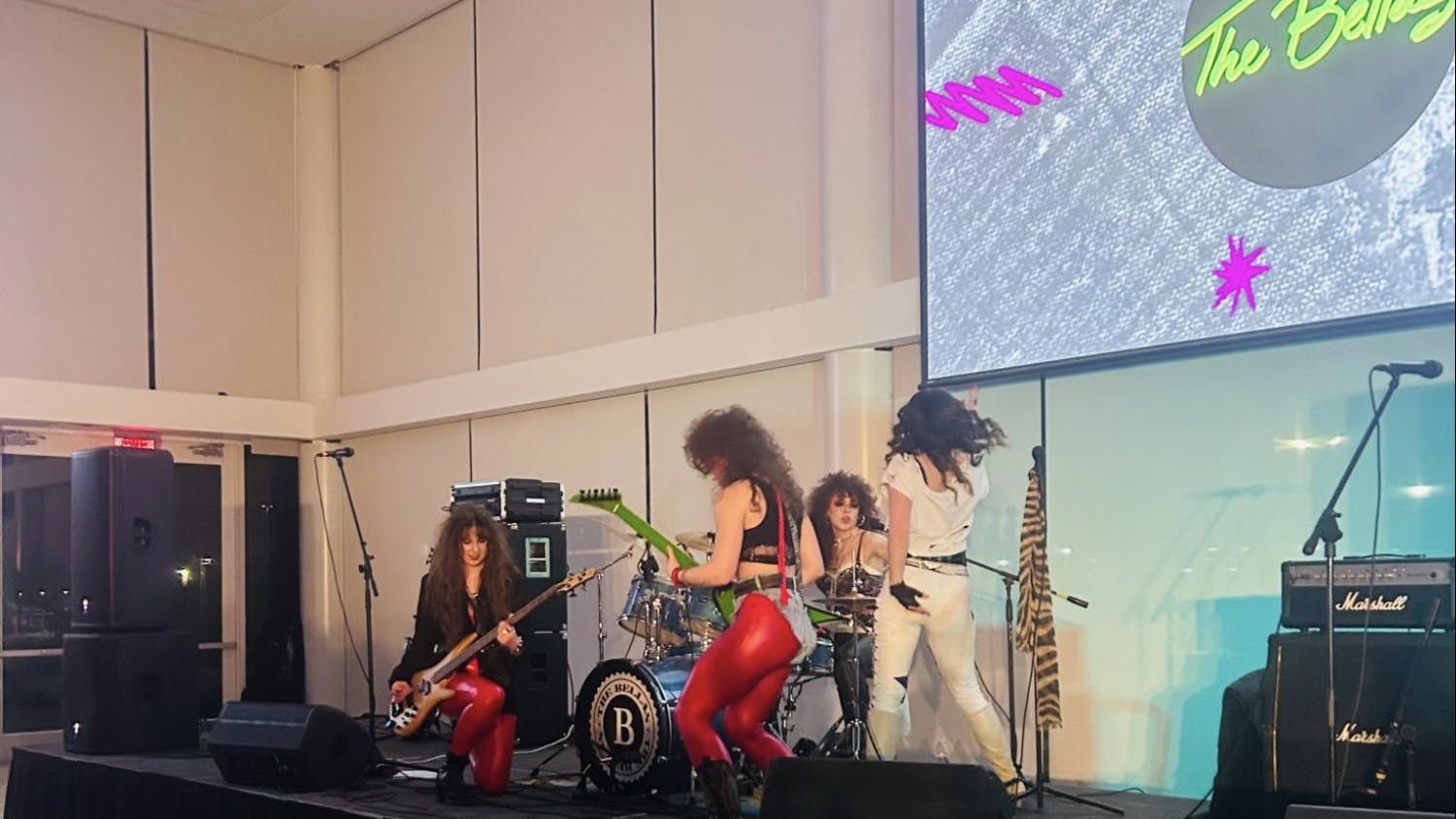Walt Whitman, possibly the greatest American poet, was reincarnated through music and voice at Kendall Hall last Friday evening. As part of the Walt Whitman Symposium, The Fred Hersch Ensemble, a jazz group, put Whitman to music, with both spoken and sung sections, as well as a number of evocative and captivating instrumental breaks. The composition was named for Whitman's poetry collection "Leaves of Grass."
"We're pleased to be a part of this symposium," Fred Hersch, who wrote the music and selected the text, said in the introduction to the program.
Setting sections of 11 poems to music, Hersch covered a wide range of Whitman's work, and did not limit it to just "Song of Myself," the poet's most famous piece.
The ensemble consisted of Ralph Alessi, trumpet and flugelhorn; Mike Christianson, trombone; Bruce Williamson, clarinet, alto sax and bass clarinet; Tony Malaby, tenor sax; Gregory Heffernan, cello; Drew Gress, bass; Hersch, piano; John Hollenbeck, drums and percussion, and Kate McGarry and Bradley Fox, vocals.
During one particularly resonant piece, "The Sleepers," Fox sang and recited lines like, "the sound I love, the sound of the human voice," showing, through his voice, just what that line represented.
The poem continued, "the violin cello / I hear the key'd cornet, it glides quickly in through my ears," which started boisterously with the baritone Fox, a classical singer. However, as the poetry progressed, other members of the ensemble joined in until all were chanting the lines of the poem, reinforcing the resonance of one characteristic element of Whitman's poetry, his list making.
The third piece, "Whoever You Are Holding Me Now In Hand," like a number of others in the first half of the performance, evoked notions of film noir. Other songs, however, varied between the sound of a '60s sitcom theme and patriotic melodies.
The percussion throughout the show was outstanding, helping to set the mood. Though in most cases percussion and, more specifically, drums, becomes part of the background in a song, at times it almost seemed the percussion was the centerpiece of the ensemble. "He's a master at creating interesting sounds without being gimmicky," Hersch said of Hollenbeck.
There were a number of musical influences referred to throughout the one-hour show, including jazz, Brazilian and Latin rhythms and Americana. Each of the band members had a moment to shine, many of them with solos, adding to the different styles and interpretations of the poetry. McGarry, a jazz singer, brought home the true nature of the program, her voice adding to the passion of the poetry.
After the show, Hersch and members of Sigma Tau Delta, the English honor society, as well as music majors, had a private discussion on the balcony in Kendall. Hersch said that several of the pieces, such as one from the poem "Mystic Trumpeter," involved quite a bit of initial improvisation on the parts of the musicians and singers. However, as the ensemble played the show over time, the improvised sections were perfected and became part of the style of the song.
Using the last edition, or the deathbed edition of "Leaves of Grass," Hersch explained how he chose those passages for this production. He said he would mark the passages that he thought would be meaningful, cut them out, spread them along the floor and "left them on the floor for four months" after which he decided on what to use. "I first thought, it's Whitman, it's going to be edgy." However, as he progressed with the shaping of the composition, he said he used sections that felt very intimate.
Though there were two parts to the show, the time was not split evenly, with the first part lasting nearly an hour while the second lasted a mere 30 minutes. Hersch explained this was on purpose, and that the first half of the show was meant to be energetic while the second was calmer and much more mellow.
"I didn't know what to expect," Jonathan Borst, junior English major, said, "but I thought it was very good." Before the show, he said that he'd had no experience reading Whitman.
Charlie Laskowski, a student of Kean University accompanied Kathy Loglisci, junior English secondary education major. "I thought I was here to see Fred Durst," he joked after the show.
"I think it's remarkable," Catie Rosemurgy, assistant professor of English, said about the performance. "It seems a real celebration of the text."
Also in attendance were Symposium co-director David Blake's children. "I think it's very well conducted, and that it was well organized and put together. Excellent," Evan Blake said. Eva Blake said she enjoyed the many different instruments in the show.
Juda Bennett, assistant professor of English, said the composition should be "required listening for every English major."
Overall, the show was a perfect way to show the magic of Whitman's work.






